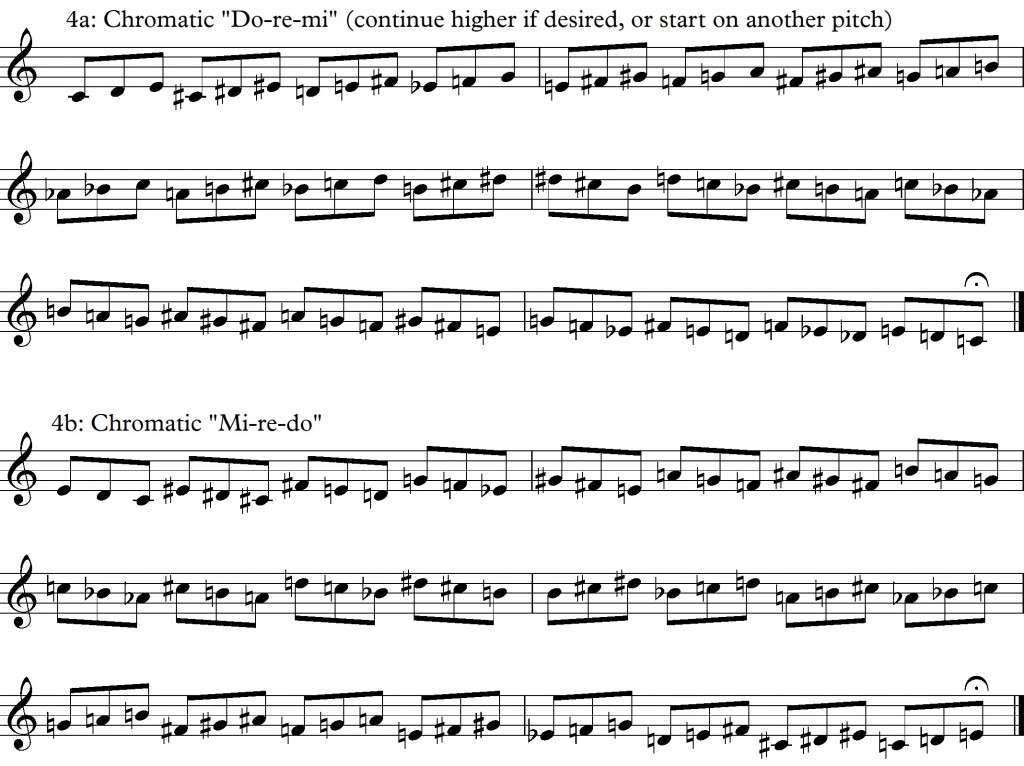Before this week’s challenge, I want to talk for a moment about good practice habits and how they apply to these scale patterns. There are a few basic concepts at work, but it’s important to know the appropriate role for each:
- Routine, organization and discipline: A practice routine is essential to building consistency and endurance, and it is also the only way we can hope to improve core fundamentals. For the purposes of our scale patterns that means practicing them every day. It also means tracking our progress over time and making sure we aren’t leaving out any keys or modes.
- Variety and creativity: Even though routine is essential for long-term progress, our practice should be varied and creative. In the short term, that means incorporating many variations and practice techniques into individual sessions (more on that later). Variety also means balancing each practice session – it’s not helpful to play an exercise for an hour straight, overdose and never play it again. In the long run, “variety and creativity” means switching exercises and scale types (major, minor, whole tone, chromatic, diminished, modes, etc.) I try to swap exercises every week, and I also challenge myself to create new exercises.
This week’s challenge is a hybrid: part diatonic, part chromatic. You may have already noticed last week that these are often much simpler to “know” than to read! If you enjoyed this one, there are many similar exercises in the classic book Speed Studies by Robert Nagel.
